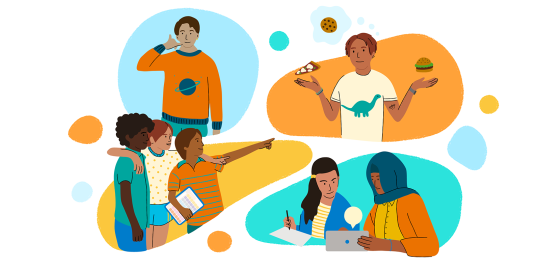More than anything, I want to be understood by the people around me. I find using my speech extremely difficult in many parts of my day-to-day life. However, I’ve always lived somewhat of a paradox. In other parts of my life, my speech flows freely to the point where I regularly speak at events and even co-host a podcast.
Throughout my life, I’ve had multi-year periods with little to no speech and periods where my speech has been reliable. To say the least, it’s been very confusing. Making sense of my speech has taken a long time. In the last few years, we’ve had a bit of a breakthrough. My speech today is the best it’s ever been. But more than that, when my speech isn’t so great, we have a process to understand why and identify ways to improve it.
In this article, we will explore the approach we’ve been using and how we’ve been applying it to help me thrive.
But before we dive into that, I should properly introduce myself and Lion.
Hello, my name is Jamie
I’m autistic, and I’m never seen far from my plush sidekick, Lion.
Lion is my plushie companion, he never leaves my side and helps make the world a slightly more understandable place. Lion is part of the way that my “disability” affects me, and from this + Lion seemed like an ideal name and description for what I am doing. When using “we” in this article, I mean myself (Jamie) and Lion.
I’m a digital accessibility specialist, software engineer, and maker. I’ve held senior & leadership roles within the BBC and worked with a wide range of companies, from banks to game studios. Millions of people use my code every day. It’s my engineering background that led to the breakthrough in my speech. When something goes wrong in engineering, we use a process called ‘root cause analysis’ to understand what has happened. The better we understand why something didn’t go to plan, the more we can do to improve it in the future. We’ve been using the same approach with my speech. We needed a way to identify why my speech was difficult and what we could do to improve it.
For me, it all came down to the subtle difference between ability, capability, and capacity.
Ability
Sometimes I am unable to speak in the sense that I don’t have the skill needed to communicate with speech in that context. Everyone is unable to speak in some context. For example, imagine you’re in France and don’t speak French. It’s an ‘inability’ because it’s a skill you simply don’t have. I am unable to speak French. But I am also unable to speak about some concepts like pain. When we find I am unable to speak about something, we need to focus on building my understanding of the concepts. We need to build my skills in that area. For pain, I worked with the support folks in my life to understand the different types of pain and learn how to name them. Initially, we used colors (purple pain, brown pain, etc.) each time I was in pain, and we recognized a pattern over time. Purple pain was a ‘sharp’ pain. Brown pain was a ‘bruising’ pain. In a nutshell, if I’m unable to do something, we respond by developing the skills.
Capability
I can’t use my abilities every day. Just because I am able to do something once doesn’t mean I can do it all the time. In other words, I might not be capable of doing something on a specific day or time. My capability for speech varies enormously. It’s impacted by many different things, such as environment, structure, power dynamics, and pressure. My capability for speech drops sharply at the cafe, where the environment is loud, busy, and unpredictable. I’m simply overwhelmed. Structure is more subtle. Structure impacts my capability for speech when it comes to working out what or when to say things. I can almost always sing or repeat rhyming phrases as it’s an easy structure. A three-way conversion has a much more complex structure. That will often impact my capability for speech.
Power dynamics and pressure are even more subtle than structure; how we speak changes depending on context. For example, speaking to a police officer or a social worker differs from speaking to a friend. The weight of a situation will often impact my capability for speech. I’ve never had a working speech during a ‘social care review.’ But I can quite easily talk about it on a stage a week later. Giving a presentation is easy as its structure is simple, and there aren’t any life-changing consequences if I pick the wrong word or phrase.
In a nutshell, external factors impact my capability for speech depending on the day and situation. If I’m incapable of speech, we need to work out what the barriers are and resolve them.




